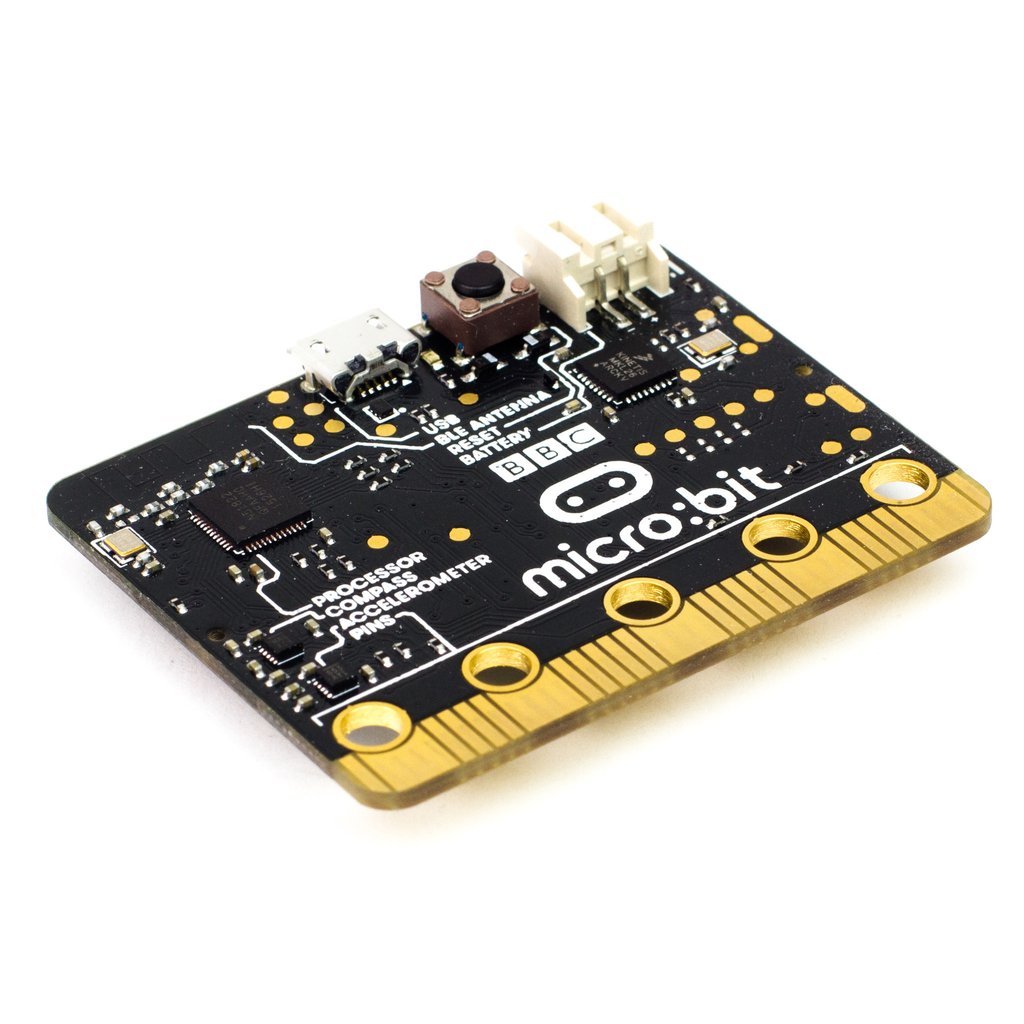The BBC Micro:bit was finally released on sale to the general public last week and I snapped one up to see what it was all about.
I got mine through the lovely people at Pimoroni, which sell everything from just the device itself right up to a full-on inventors kit if you’re really feeling creative. I just got the “Essentials Kit”, which got me the Micro:bit itself alongside a USB cable and a power supply.
The Device
You would be forgiven for assuming there wasn’t much to the Micro:bit. But on this 5cmx4cm device there’s an LED matrix you can program, a bunch of sensors like an accellerometer to plug into and various connections to allow you to interact with other devices like a Raspberry Pi.
Code can be created using the online code editor, ran inside the editor’s simulator and then compiled and downloaded to your computer. Then it’s just a case of dragging and dropping onto your device.
Code Editing
There’s a bunch of ways you can get coding straight away.
If you’re new to coding, you may get some use out of Code Kingdoms. Code Kingdoms uses a building block interface, which allows you to connect elements together by connecting elements together. As your ability gets better you can start to lose the block interface and move towards a more traditional text interface. There’s even a slider to show how your code goes from block form to text form to aid the learning process.
While Code Kingdoms is JavaScript-based there’s also a Python editor for some “hard mode” coding. There’s also Microsoft’s Block Editor and Touch Develop platforms, which do much the same as the others but with variable degrees of success.
My personal favourite was Code Kingdoms. It had the nicest, most approachable interface. It also included tutorials of varying difficulty, which I found to serve as a great introduciton but quickly got glitchy the more complicated the examples were.
Verdict
Getting kids to code en masse seems to me like the wrong approach. As long as it perks the interests of a few kids too scared to test the waters (and I’m included in that) then that’s a great thing.
The Micro:bit itself is a fantastic device and the development tools are usable for all ability levels. If you can get your hands on one then do. If you’ve got kids even better. Go work through the tutorials together and who knows what might happen after that.
